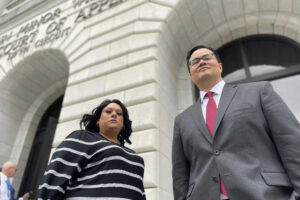Trending on Twitter: Blocking Access to Politicians’ Deleted Tweets
The social media giant’s decision to end public access to its websites that archive politicians’ deleted tweets alarms transparency advocates. (PIXXart / Shutterstock)
(PIXXart / Shutterstock)
(PIXXart / Shutterstock)
The nonprofit transparency advocate Open State Foundation recently reported that Twitter has cut off access for its websites, collectively called Politwoops, which were operating in 30 countries and archiving tweets deleted by politicians. The U.S. version of Politwoops, run by the Sunlight Foundation, had already been blocked by Twitter, in June. These websites made it possible for citizens to access statements made in 140 characters or less on the social media platform by those who lead their government, even when a politician later decided to withdraw his or her statement.
Twitter is popular among politicians in the United States and across the world, so such an action has sweeping effects. Politicians’ public statements are constantly used to discredit or vindicate their practices and beliefs, and allowing their statements to disappear weakens that tradition. Imagine if Jeb Bush could delete his “anchor baby” comments or his statements about funding women’s health services. Many have questioned why Twitter would make such a move, since it’s been known as a company that values transparency. “The ability to delete one’s tweets—for whatever reason—has been a long-standing feature of Twitter for all users,” said a statement the company sent to Truthdig. “We built into our Developer Policy provisions a requirement that those accessing our APIs delete content that Twitter reports as deleted or expired.” The statement goes on to say that Politwoops violated that policy and was subsequently blocked.
“There is immense value in being able to surface deleted tweets that show changes in messaging by elected officials and candidates,” Jenn Topper, a spokeswoman for the Sunlight Foundation, told Truthdig. “We have a right as citizens and voters to hold government officials and candidates accountable for the statements they make.”
The idea that words of a public official can simply be erased and that the public holds no power to check that could set a concerning precedent. Keep in mind is that this is not about the privacy of a private citizen, but the public statements of a public official.
“Twitter’s reaction is definitely not the best way to encourage and improve access to information,” Kyu Ho Youm, a professor and First Amendment expert at the University of Oregon School of Journalism and Communication, told Truthdig. “Twitter is primarily for what? Social media. Social media is supposed to provide a more open marketplace of ideas, instead of intervening with supposedly open communication.” He believes social media services should provide a platform for communication, not command it.
Youm said being able to delete one’s public statements is not covered by the First Amendment, so this isn’t considered a free speech issue. “The First Amendment has everything to do with more, rather than less, speech,” he said.
He also doesn’t consider it a privacy issue, because the statements have been posted on social media for everyone to see. It’s really more about a desired right to control information, Youm believes. “I feel Twitter has gone overboard, if Twitter is trying to think of how to protect the privacy of individuals,” he said. He notes that one of the major issues here is that Twitter controls the terms of service and shapes them in a particular way, either vaguely or specifically. When those terms are broken, Twitter has the power to respond in the way it sees fit.
The civic technology movement has created great new ways to increase public engagement and oversight of those in power, according to Topper. “But before we allow privately owned walled gardens to take over our virtual town squares, we should recognize the ability that market forces have to change the very nature of what is ‘public’ in our society,” she said.
Topper believes those in power can only be held accountable if there is a high level of transparency in every form of communication. As technology expands forms of communications, we will have to determine how transparency is applied. The growing variety of ways leaders can reach the public is useful only if each method has the same rules of engagement, she said.
Your support matters…Independent journalism is under threat and overshadowed by heavily funded mainstream media.
You can help level the playing field. Become a member.
Your tax-deductible contribution keeps us digging beneath the headlines to give you thought-provoking, investigative reporting and analysis that unearths what's really happening- without compromise.
Give today to support our courageous, independent journalists.






You need to be a supporter to comment.
There are currently no responses to this article.
Be the first to respond.